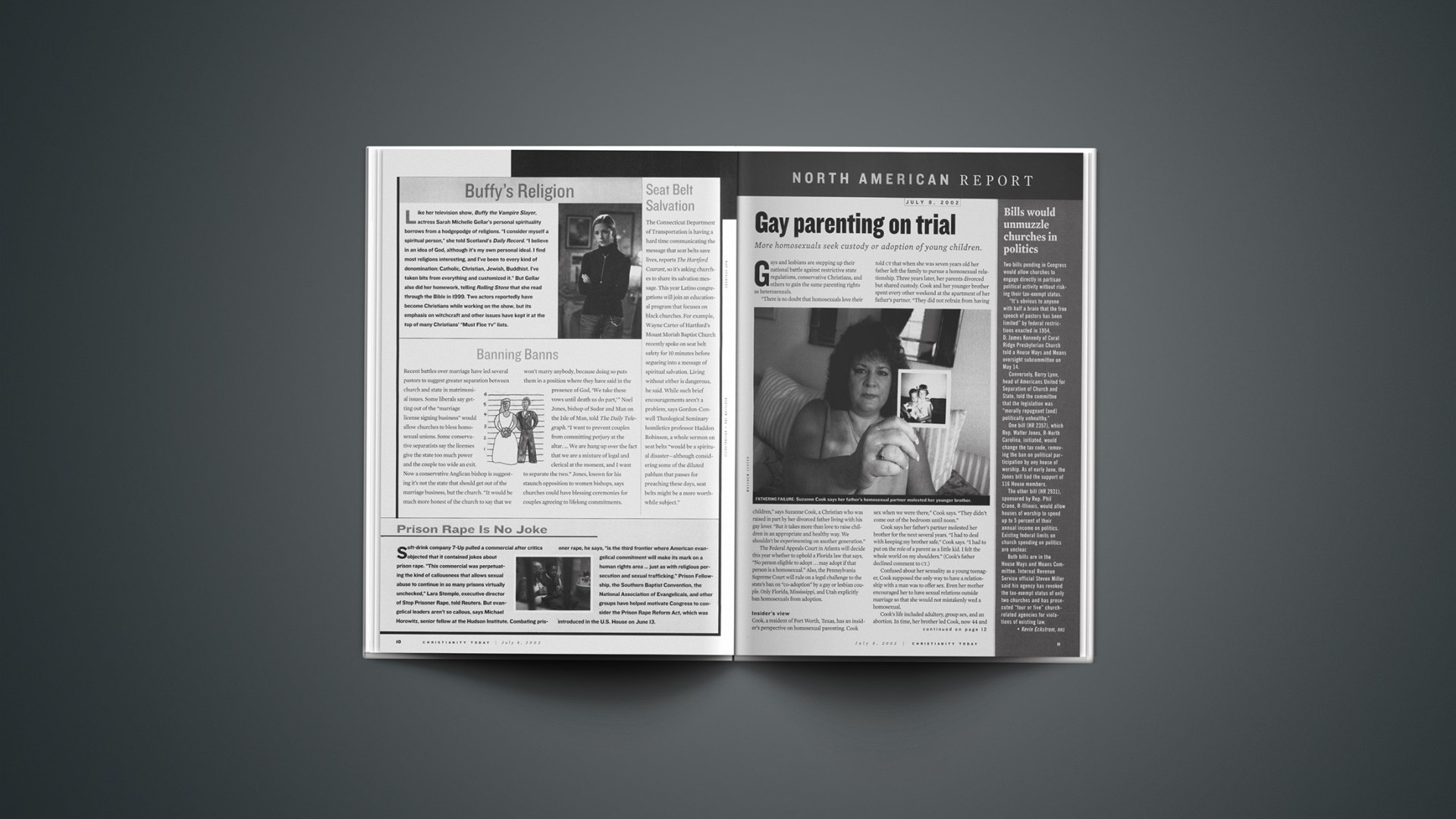Soft drink company 7-Up pulled a commercial after critics objected that it contained jokes about prison rape. “This commercial was perpetuating the kind of callousness that allows sexual abuse to continue in so many prisons virtually unchecked,” Lara Stemple, executive director of Stop Prisoner Rape, told Reuters. But evangelical leaders aren’t so callous, says Michael Horowitz, senior fellow at the Hudson Institute. Combating prisoner rape, he says, “is the third frontier where American evangelical commitment will make its mark on a human rights area … just as with religious persecution and sexual trafficking.” Prison Fellowship, the Southern Baptist Convention, the National Association of Evangelicals, and other groups have helped motivate Congress to consider the Prison Rape Reform Act, which was introduced in the U.S. House on June 13.
Copyright © 2002 Christianity Today. Click for reprint information.
Related Elsewhere
The Prison Rape Reduction Act of 2002 has been introduced into both the House (H.R. 4943) and the Senate (S.2619) and been referred to committee.
A 378-page report on prison rape by Human Rights Watch is based on more than three years of research and is the first national survey of prisoner-on-prisoner rape.
Last year, Anne Morse wrote in World magazine that “Savage prison gang rapes turn many run-of-the-mill prisoners into violent felons-in-waiting. Reformers say it’s time to rein in jailhouse predators.”
Charles Colson has written on the Prison Fellowship website that, “we should fight against prison rape—not because we fear the spread of disease will affect us, and not because we fear that one day our own children may end up in jail for a day…We should oppose it because it is the humane and Christian thing to do.”
Editorials and opinion pieces on prison rape include:
Rape in Prison—The New York Times (April 22, 2001)
The toll of prison rape—The Toledo (Ohio) Blade (April 22, 2001)
Cruel and unusual prison?—The Milwaukee Journal Sentinel (April 22, 2001)
Not Part of the Penalty—Joanne Mariner, FindLaw.com (April 19, 2001)










